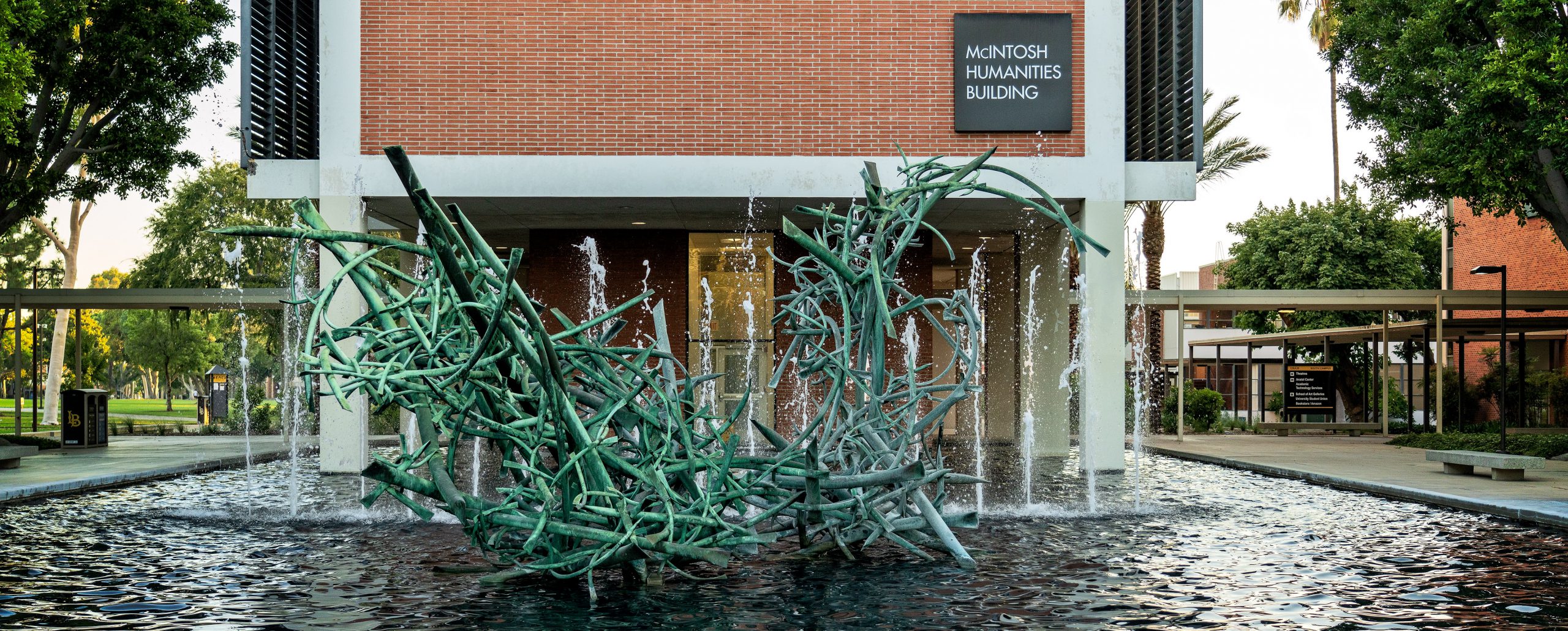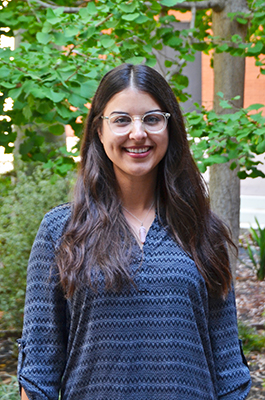Graduate Research Fellowship
Graduate students from programs in the College of Liberal Arts may compete in the annual Graduate Research Fellowship (GRF) competition. The competition is announced each winter, and held the following spring. The University awards one fellowship per college per year. Fellows are awarded $4,500 each semester.
Students must be nominated by a faculty supervisor and eligible to apply. Eligibility requires satisfying the conditions for California residency and meeting criteria for financial aid eligibility (including having filed the FAFSA). Fellows must demonstrate mastery of research methods appropriate to discipline as evidenced in culminating scholarly activity (thesis, project, article, presentation, etc.) as well as timely progress toward degree as evidenced by graduation no later than one academic year following the fellowship year. A final report of work accomplished is due to the Dean of Graduate Studies at the end of the fellowship period.
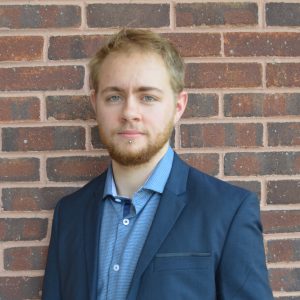 Supervised by Dr. Nellie Wieland
Supervised by Dr. Nellie Wieland
Avery Amerson graduated from Illinois Wesleyan University in 2017 with a B.A. in Psychology, and is currently pursuing the M.A. in Philosophy. He is broadly interested in studying the connections between the philosophies of language and cognition. These interests developed from a course on the Austrian philosopher Ludwig Wittgenstein. His current research interests arose from a paper he wrote, entitled ‘Wittgenstein, Extended Cognition, and the Problem of Other Minds’, which he subsequently presented at the CSULB and CSU-wide Student Research Competition, as well as at the Texas Tech University Annual Philosophy Conference.
Avery’s research project is focused on the development from protolanguage to language, and evaluating the explanatory merits of the Hypothesis of Extended Cognition in accounting for this major transitional phase in human communication. According to this hypothesis, certain processes in the external world interact with our minds in a manner that influences perception and behavior. The world is not merely a tool of the mind but is an active component of it; moreover, for advocates of this hypothesis, our cognition permeates the external world and affects others who participate in the same cognitive system. In turn, we are also affected by others’ cognition. The dual interaction between cognition and the environment may have shaped how human language developed over time. Looking to Wittgenstein’s famous Private Language Argument as support for the view that language is necessarily in the public sphere and requires a community of users, it is easier to see how a communal view of cognition (e.g., extended cognition) might be the key component in the successful development of human language.
While the connection between language and cognition is apparent, what must be explored is how exactly the two are related and what prompted these massive shifts in how we communicate. Avery will explore the literature that argues that human language arose alongside cognition and was developed to meet the cognitive needs of our ancient human ancestors. He will argue that the two developing together is what allowed for the rapid expansion of both. He will suggest that this rapid expansion of human communication is better explained when looking through the lens of the Hypothesis of Extended Cognition.
Supervised by Dr. Jeffrey High
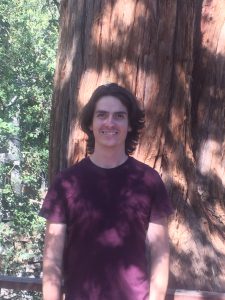 Glen Gray is broadly interested in the intersection of literature and music in the German context. He received a B.A. in German Studies and a B.M. in Music Composition from Cal State Long Beach in 2017 and is currently pursuing an M.A. in German Studies. Glen presented a paper on Hans Werner Henze’s Opera Der Prinz von Homburg at the 52nd Annual CSULB Comparative Literature Conference, and acted as musical director for the 2019 German Art in SoCal–SoCal in German Art conference at CSULB, where he curated and directed a musical program of the exile compositions of Kurt Weill and Hanns Eisler. He premiered musical compositions at the 2016 conference Drive-By Theatre Double Feature: Brecht+60/Kleist+205 and the 2019 Oh My Ears music festival, and he is co-founder of the Los Angeles Electroacoustic Ensemble.
Glen Gray is broadly interested in the intersection of literature and music in the German context. He received a B.A. in German Studies and a B.M. in Music Composition from Cal State Long Beach in 2017 and is currently pursuing an M.A. in German Studies. Glen presented a paper on Hans Werner Henze’s Opera Der Prinz von Homburg at the 52nd Annual CSULB Comparative Literature Conference, and acted as musical director for the 2019 German Art in SoCal–SoCal in German Art conference at CSULB, where he curated and directed a musical program of the exile compositions of Kurt Weill and Hanns Eisler. He premiered musical compositions at the 2016 conference Drive-By Theatre Double Feature: Brecht+60/Kleist+205 and the 2019 Oh My Ears music festival, and he is co-founder of the Los Angeles Electroacoustic Ensemble.
Glen’s current research project addresses the lack of scholarly attention regarding six operatic adaptations of 19th century German author Heinrich von Kleist’s (1777–1811) prose drama Das Käthchen von Heilbronn (1810), which were composed between 1845 and 1881, through a comparative analysis of the libretti and scores. Kleist’s life and works have enjoyed a great deal of scholarly attention and artistic resonance since the beginning of the 20th century. The young author, however, faced difficulties with his reception: a number of his pieces were not premiered in his lifetime, and some were first performed only decades after his death. However, Das Käthchen von Heilbronn was performed relatively often in the 19th century. It appeared as it was originally composed, was rewritten for stage interpretations, recast in novel form, and perhaps foremost adapted as opera. There is to date no significant research published on any of the operatic adaptations of Das Käthchen von Heilbronn. Research funding will allow Glen to travel to German and Austrian archives to study libretti and scores, because copies of these rare musical works only exist in European archives. Glen presented his first findings on this topic in a comparison of Kleist’s Das Käthchen von Heilbronn and Karl Martin Reinthaler’s (1822–1896) 1881 opera of the same name at the 54th Annual Comparative Literature Conference at CSULB. He demonstrated that Reinthaler’s opera reinterprets Kleist’s drama to celebrate the Middle Ages, whereas Kleist’s drama parodies the Middle Ages, and pursued the reasons why. This project’s results will help shape the current understanding of Kleist’s legacy.
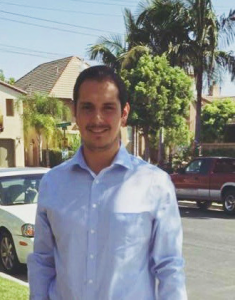
Supervised by Dr. Kevin Wallsten
As a first generation college student, I am seeking a PhD in political science with an emphasis in comparative politics and international relations. I grew up in a blue-collar Mexican-American household. My father supported the family by commuting 70 miles daily to work as a welder at a shipping company in Long Beach. He knows nothing but hard work, which is why I was shocked when President Trump suggested during his campaign that Mexicans are only capable of bringing drugs and violent crime into the US, not solutions to problems. With the help of the Graduate Research Fellowship (GRF), I would like to advance two working research projects that seek solutions to issues concerning Mexico’s ongoing “drug war.” According to the Merida Initiative and the demand for drugs in the US, this conflict is America’s problem too, and solving it requires an appreciation of diversity and more cooperation between and within the two nations.
The first project argues that assassinations of Mexican mayors are more prevalent in states wherein different political parties control different levels of government. Rule by a single party facilitates cooperation across all levels of government (i.e. state and federal). Such cooperation is crucial to allocating resources properly while combating drug-trafficking organizations (DTOs) and stifling their violent operations. However, states with different political parties across the multiple levels are government are less likely to cooperate and therefore more incapable of upholding the law, combatting DTOs, and stifling violent crimes against politicians. While the second project is currently in the early theoretical stage, it examines whether the presence of oil prolongs drug violence in Mexico. With the help of the GRF, I plan to advance both of these projects further to hopefully produce knowledge that can be helpful to mitigate the drug conflict from a policy standpoint.
I would like to thank my family, friends, and everyone at the Department of Political Science for helping me get to this point.
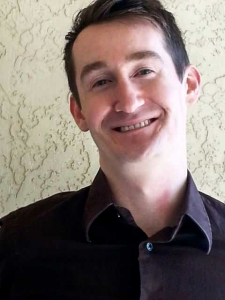
Supervised by Dr. Nellie Wieland
My project is on the role that values play in adjudication of recent same-sex marriage case law, and its implications for other civil rights debates. My working thesis is that both federal and state judges could not decide gay marriage equal protection or due process challenges without relying on extralegal value judgments about: (1) the purpose of marriage, and (2) the ability of gay and lesbian couples to equally satisfy this purpose.
This research draws on research methodologies draw from legal reasoning, philosophy, political science, gay rights history, and sociology. It contributes substantially to LGBTQ rights literature, and defends legal claims about constitutional law, claims by queer theorists about marriage, and political claims about the role of our judiciary in intermediating competing social values. The project is socially and politically current because, although the battle for same-sex marriage is (nearly) over, lessons gleaned from one legal context are often instructive to future classes of plaintiffs in another. Furthermore, my research interrogates deeply the role of judge’s morality, attitudes, and ideologies in terms of how the law gets decided in some of the most contentious constitutional “hard” cases.
My project will analyze every appellate-level case nationwide addressing same-sex marriage rights, and extract and examine the values behind the legal reasoning in the equal protection and due process challenges gay plaintiffs have made to state marriage statutes. What is particularly interesting is that, although judges present their reasoning as if it were politically neutral, my analysis shows that, at bottom, this reasoning is value-based. I will argue that gay marriage cases reveal an unavoidable judicial bias—either for or against—the LGBTQ plaintiffs. In other words, I attempt to show that, at least in this line of constitutional law cases, judges are making value judgments in this area of the law. This analysis supports further claims in philosophy of law.
My GRF project will conclude by arguing that one implication of same-sex marriage cases is that law and values are not entirely separate—that there are areas of law where moral values are either incorporated into the law through adjudication or are inherently present in certain legal standards. Contrary to modern legal trends, I argue that this is not a failing of some so-called “activist” judge, but rather the ethical nature of the job. I also suggest that we can embrace an unflinchingly robust view of the judiciary as guardians of civil rights and social values. These claims in my thesis argue against two common contemporary viewpoints in the legal profession: that law is just “doing one’s job,” and that law is wholly “separate” or “separable” from morality. This is significant because these beliefs in the legal profession affect how legal practitioners conceive of their job, and, ultimately, how our legal system vindicates rights.
Supervised by Dr. Guido Urizar
Olivia Silke graduated from Chapman University with her bachelor’s degree in psychology in 2015. After graduation, she worked at the University of Southern California, assessing health and pain outcomes for orthopedic patients after a Mindfulness-Based Intervention. Currently, she is a first-year graduate student in the Masters in Psychological Research Program at CSULB, where she is working in the PRO-Health (Partners in Research & Outreach for Health) laboratory with Dr. Guido Urizar. Olivia was awarded the Dr. Steven Ungerleider Graduate Research Award in 2018.
She has spent the last year studying stress biomarkers and perceived stress for low-income women and their infants during the pre- and postnatal period. Her thesis, entitled Maternal Mindful Disposition, Alpha Amylase, Cortisol, and Perceived Stress: A Longitudinal Analysis on Maternal and Infant Stress Response, focuses on the role of mindfulness, or one’s ability to maintain present moment awareness and attention, on multifaceted stress responses. Olivia’s research conceptualizes stress by investigating multiple pathways of action, including the hypothalamic pituitary adrenal axis, the sympathetic adrenal medullary axis, perceived stress, and perceived stress reactivity. Dr. Urizar in the Department of Psychology will help guide Olivia’s research. Over the next year, they will collaborate on the completion of a peer-reviewed manuscript, explore various models in mixed method design, and present at professional conferences.
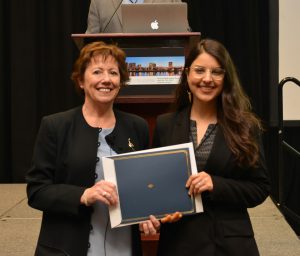 Olivia is interested in exploring applications of mind-body constructs for low-income women through a preventative medicine lens; she intends to continue this research in a Health Psychology doctoral program. She hopes her research will one day expand current knowledge of mind-body interventions in the following ways: 1) address limitations in the current body of research, 2) increase mind-body prevention programs in clinical settings, 3) outline biological outcomes associated with meditation, and 4) assist with the dissemination of empirically based mind-body interventions.
Olivia is interested in exploring applications of mind-body constructs for low-income women through a preventative medicine lens; she intends to continue this research in a Health Psychology doctoral program. She hopes her research will one day expand current knowledge of mind-body interventions in the following ways: 1) address limitations in the current body of research, 2) increase mind-body prevention programs in clinical settings, 3) outline biological outcomes associated with meditation, and 4) assist with the dissemination of empirically based mind-body interventions.
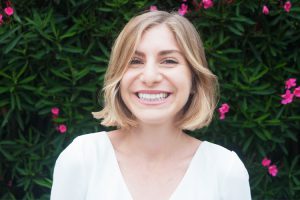
Supervised by Dr. Lily House-Peters
Eugenia Bey is a Master’s candidate in the Department of Geography, is excited to have been selected to represent the College of Liberal Arts as the 2017–2018 Graduate Research Fellow. Eugenia graduated with honors from the University of Utah with a B. S. in Environmental and Sustainability Studies, and B. S. in Urban Ecology, where she was dedicated to enriching the lives of her peers on campus by directing and participating in multiple student groups, including the Sustainability Leadership Committee and the Student Collective of Allied Planners and Ecologists. She has volunteered with a variety of urban agriculture and environmental justice nonprofit organizations. Her most recent work focuses on helping to establish Long Beach, CA as one of the California Environmental Justice Alliance’s ‘Green Zone’ cities. After the culmination of her graduate studies, Eugenia looks forward to directing a non-profit organization that focuses on strategic conservation planning and community resilience building through green infrastructure education and implementation.
Eugenia’s thesis research project, entitled Cultivating Social-Ecological Resilience and Climate Change Adaptation through Green Infrastructure in Long Beach CA, focuses on addressing the anticipated local impacts of climate change through ecosystem-based adaptation and community engagement. Densely populated coastal cities, such as Long Beach, will face increased risks due to sea-level rise, larger storm surges, prolonged drought, deteriorating air quality, and an increased number of extreme heat days. Furthermore, Long Beach is home to a wide diversity of socioeconomic groups, and the impacts of climate change are expected to be unevenly distributed, with a disproportionate burden of risks and hazards affecting already disenfranchised populations, and residents and businesses residing in low-lying coastal areas of the city.
Eugenia’s research takes a community-based, solutions-oriented approach to addressing these projected impacts with the intention of enhancing the social-ecological resilience of our communities. In particular, her thesis research examines the ecosystem-based adaptation strategies that green infrastructure offers. Green infrastructure is the development and strategic siting of urban green spaces such as parks, trees, and greenways in conjunction with built systems such as green roofs, permeable pavement, and rain gardens, that together can provide multiple social and ecological benefits including improved human health, stormwater and flooding abatement, air pollution reduction, and reduced urban heat island effect. This research aims to address critical questions at the forefront of environmental geography, land-use planning, and climate adaptation. Eugenia takes an interdisciplinary approach utilizing her background in urban ecology, environmental sustainability, and architectural design to address the local challenges that climate change presents to Long Beach specifically, as little research has been conducted to examine the potential contribution that green infrastructure can offer our city. Through this research, she aims to inform a gap in scholarly knowledge, while simultaneously applying problem-solving skills to tangible, real-world issues. Sensitive to capturing uneven social power relations, cultural understandings of space, and ecological function, Eugenia’s research proposes a mixed methods approach that combines qualitative and quantitative social science methods with geospatial analysis. Eugenia will collaborate with local community organizers and staff from City of Long Beach Department of Planning, to collect and analyze multiple types of data and build relationships with diverse community stakeholders, ensuring that her research is rigorous and her findings are can be applied to assist local communities build social-ecological system resilience.
Eugenia’s research will be conducted under the supervision and guidance of Dr. Lily House-Peters, Assistant Professor of Sustainability Science in the Department of Geography, whose expertise includes social-ecological system resilience, sustainable water resource management, and the human dimensions of environmental change. Over the course of the next year, Dr. House-Peters and Eugenia will collaborate to write peer-reviewed articles, and a ‘white paper’ to offer to the City of Long Beach staff and to leaders of local community organizations to better inform the decision-making process of creating a healthier, more climate-resilient Long Beach.
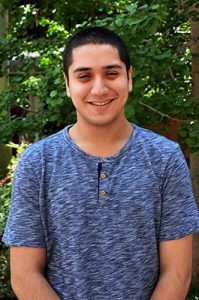
Supervised by Dr. Guido Urizar
Hugo Sanchez Hernandez received the Graduate Research Fellowship in the 2017–2018 school year. He graduated from CSULB in 2015 with a double major in psychology and Film and Electronic Arts, with a concentration in screenwriting. He joined the Masters in Psychological Research program at CSULB in 2016, where he worked with Dr. Guido Urizar in the PRO-Health (Partners in Research & Outreach for Health) lab where his research focused on examining the positive factors (e.g., mindfulness, social support) that could help buffer the adverse health risks that ethnic-minority women of low socioeconomic status suffer from. His thesis, entitled The Moderating Effect of Social Support on the Association Between Pregnant Women’s Mindfulness and Perceived Stress Reactivity, was nominated by his thesis committee for the Best Thesis Award and was published as a manuscript that additionally examined pregnant women’s cortisol (stress hormone).
Having primarily worked in the field of health psychology at CSULB, Hugo is now additionally interested in further exploring the fields of affective science and social psychology. He is currently a Ph.D. student in Psychological Science at the University of California, Irvine. His focus is on exploring interpersonal emotion regulation and the dark side of positive emotions (e.g., expressions of pride).
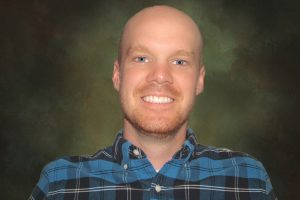
Supervised by Dr. Cory Wright
Nathan Lackey (MA Philosophy ’16) was the recipient of the Graduate Research Fellowship award for the College of Liberal Arts in the 2015–2016 academic year, under the supervision of Associate Professor of Philosophy, Dr. Cory Wright. Prior to his graduate studies at Cal State Long Beach, Nathan earned a BS in physics and a BA in Philosophy with a minor in mathematics at the University of North Carolina Asheville. His research during the fellowship period added further depth to his knowledge of these subjects, and culminated in his MA thesis, Scientific Realism and the Structure of Physical Theories. In this thesis, Nathan argued that the structural geometric changes in physical theory of the 20th century provide another historical example in support of the pessimistic meta-induction, which is one of the central philosophical arguments against scientific realism. As a result, Nathan concluded that realism about spacetime and its geometric structure is epistemologically unjustified—a conclusion that has implications for interpreting modern physics.
Nathan presented his work-in-progress at several venues. His paper ‘Congruence, geometry and space’ placed in the top three of the Humanities & Letters division of the 27th Annual Student Research Competition, and he was invited to give this same presentation at the 5th Annual Philosophy Day Symposium. Additionally, created and organized a Philosophy of Mathematics Reading Group, which was inclusively intended for any undergraduate or graduate students interested in Philosophy of Mathematics, Logic, and Philosophy of Geometry. This group met regularly in the 2015–2016 academic year to discuss central readings in the philosophy of mathematics. Nathan also helped organize a colloquium on Philosophy of Geometry at Cal State Long Beach featuring John Mumma from Cal State San Bernardino. Nathan gave a talk based on work from his thesis, ‘Interpreting geometry through physics’, and Prof. Mumma presented his paper, ‘Intuitions, axioms, and Euclid’s diagrammatic proof method’.
The Graduate Research Fellowship also gave Nathan the opportunity to study María de Paz & Robert DiSalle’s book Poincaré, Philosopher of Science: Problems and Perspectives. Nathan subsequently coauthored a review of the book, which was published in volume 36 of the journal Philosophy in Review (2016).
Nathan was admitted to the doctoral program in philosophy at the University of Minnesota, beginning in fall of 2017. The University of Minnesota, with its Center for Philosophy of Science, has historically been one of the most premier programs world-wide for advanced study of Philosophy of the Natural and Formal Sciences. The Graduate Research Fellowship was an integral part of his Ph.D applications. At Minnesota, Nathan plans to continue developing his research interests in the Philosophy of Physics and Mathematics that were initiated as a Graduate Research Fellow at Cal State Long Beach.
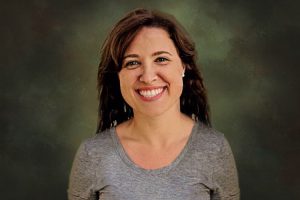 Supervised by Dr. Cory Wright
Supervised by Dr. Cory Wright
Emily Barrett (MA Philosophy ’14) was selected as the 2013–2014 Graduate Research Fellow for the College of Liberal Arts. She was awarded the fellowship for her proposal, entitled Offloading Depressive Experience: The Role of Others in the Treatment of Disorder. Her research was conducted under the supervision of Dr. Cory Wright, Associate Professor in the Department of Philosophy. Emily’s project was motivated by her interests in philosophy of psychiatry, a burgeoning interdisciplinary field which draws from philosophical subdisciplines like philosophy of science, philosophy of mind, and metaphysics, as well as psychology and neuroscience. Some of the central questions in philosophy of psychiatry that Emily explored during the course of her research included: what makes a given condition an illness? Should psychiatry conform to a medical model? What explains mental illness? Do clinical categories capture the right conception of mental illness?
Emily’s proposal was inspired by psychological studies suggesting that the presence of social support positively correlates both with a higher likelihood of recovering from depression as well as a lower likelihood of recurrence of depressive episodes. Emily hypothesized that, if true, this data suggests that depression may not be fully reducible to some set of abnormal brain states—that is, it is not a condition which is merely internal to the individual. Instead, depression is partially constituted by social conditions, and in this way is extended beyond the individual to the external environment. This reconceptualization of depression challenges some of the internalist assumptions about mental illness that are widespread in the empirical literature.
Ultimately, Emily applied her research to several domains. Her Master’s thesis, Defending the Doxastic Conception of Delusions, focuses on themes concerning the nature of delusional disorders. Some have claimed that putative delusions do not seem to satisfy the philosophical criteria for proper beliefs, but this doesn’t render delusions ‘non-doxastic’; rather, delusions are a type of irrational belief, albeit an extreme one. In her thesis, Emily defends the doxastic view—argued for by Lisa Bortolotti in her 2009 book Delusions and Other Irrational Beliefs—that delusions are beliefs. Additionally, Emily co-authored a review of Bortolotti’s book with Dr. Wright, which was published in Philosophical Quarterly in 2014. She also presented a paper, ‘Clinical Implications of Conversational Implicature’, at the 2014 meeting of the Association for the Advancement of Philosophy and Psychology in New York.
Emily’s experience as a Graduate Research Fellow advanced her development as a scholar. It also afforded her the opportunity to develop a competitive application to PhD programs in Philosophy while completing the Masters degree. She is now a PhD candidate in Philosophy at the University of Wisconsin–Madison, and in the process of planning her dissertation. The dissertation will, broadly, deal with the question of how to differentiate pathological conditions from undesirable, but normal conditions, such as depression versus sadness related to bereavement. Emily will be teaching a course in Contemporary Moral Problems, and has also developed a course in Philosophy of Psychiatry, which she hopes to teach soon.
